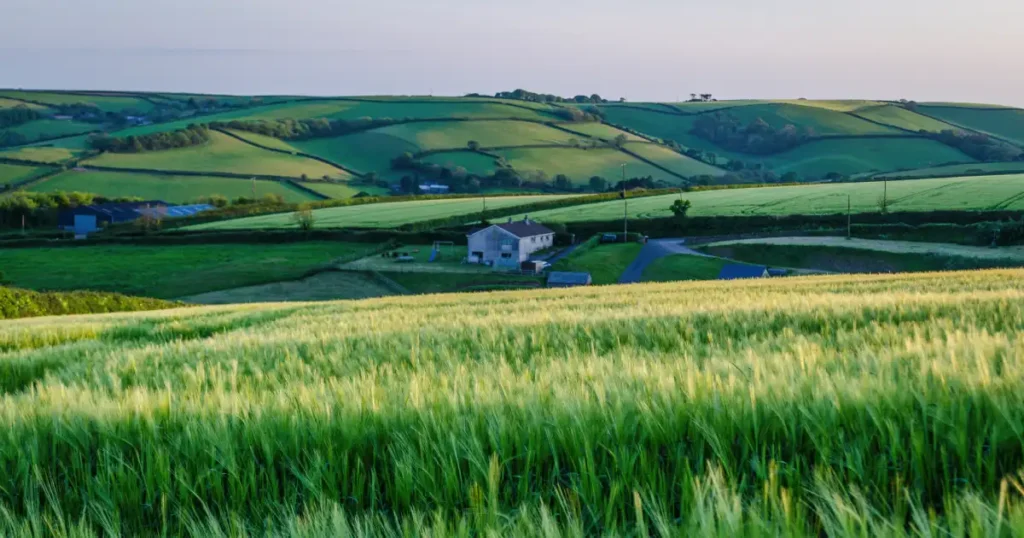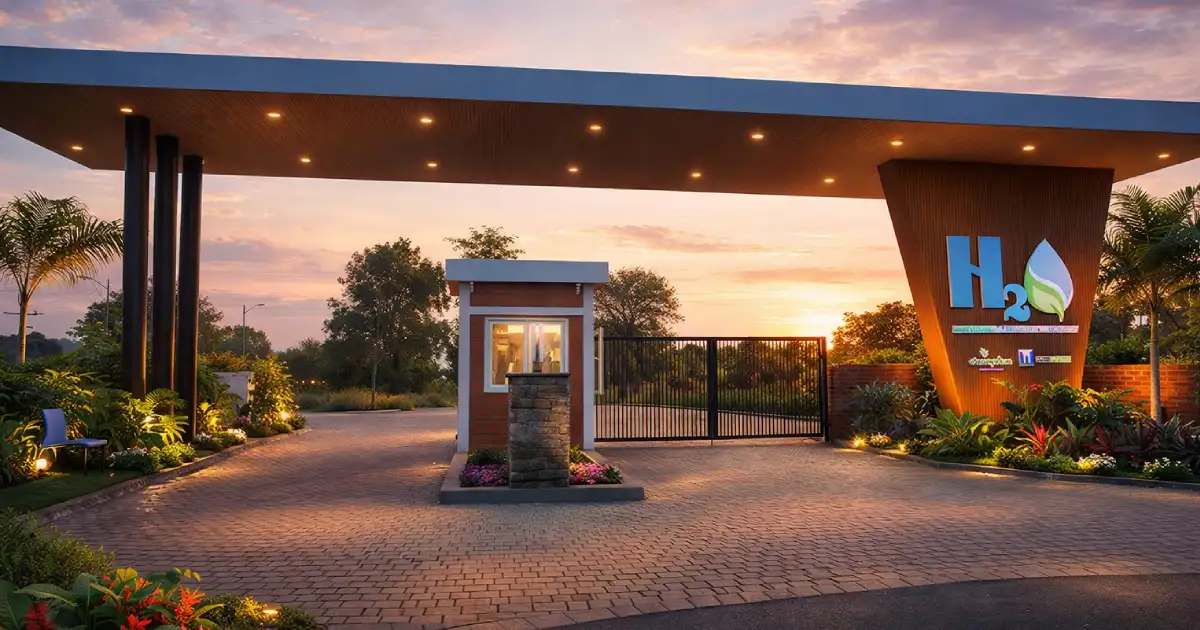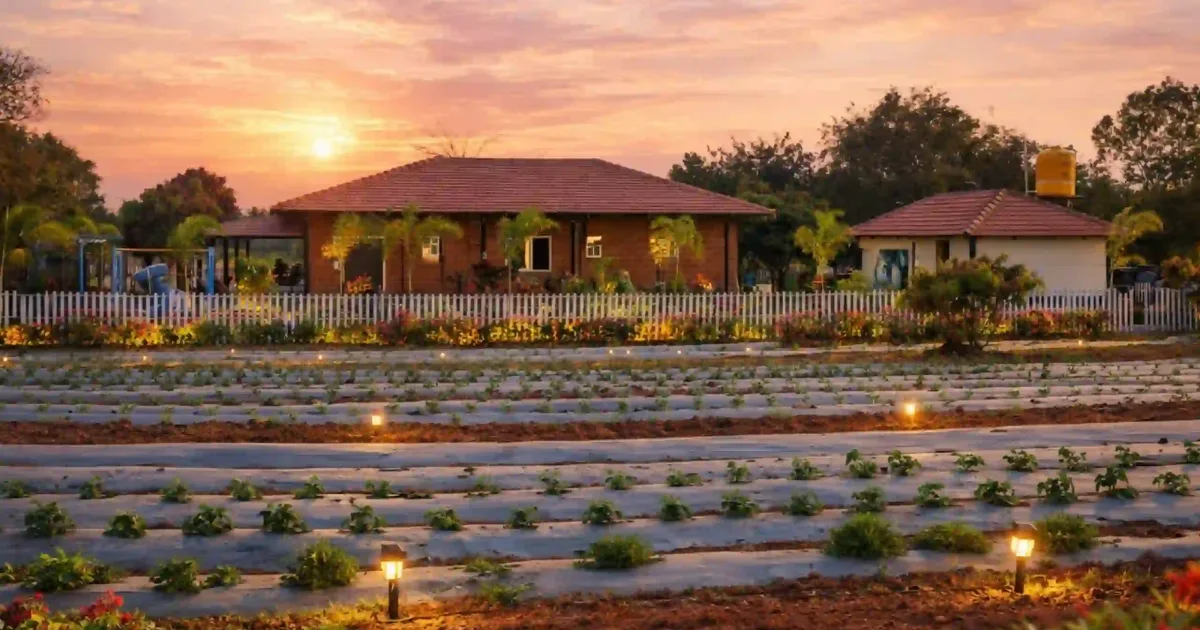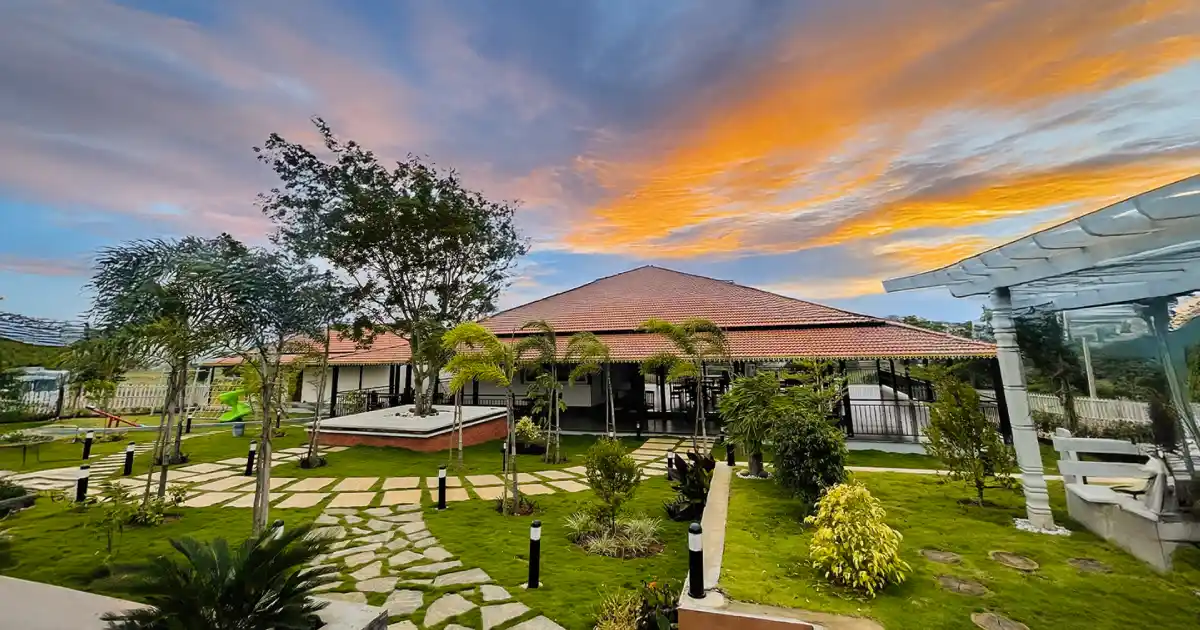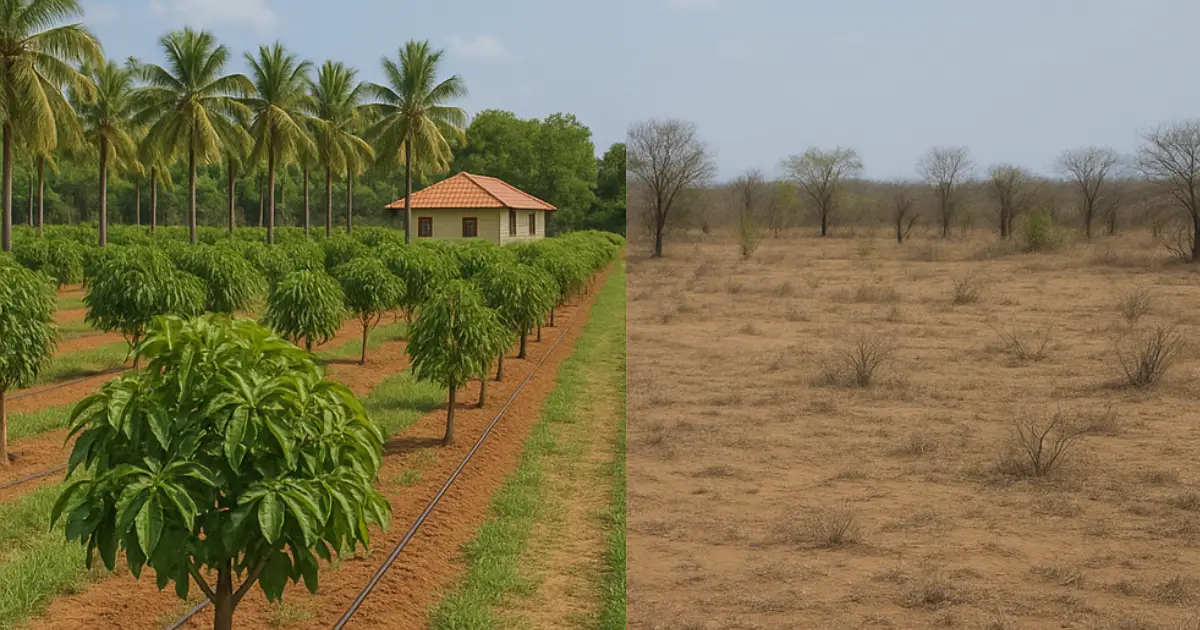Introduction: The Dream vs The Risks
Waking up with fresh air, spending weekends under mango trees, kids running barefoot on red soil farms, fresh vegetables from your own land on the table, and an investment that grows in value every year. That’s the dream of owning farmland near Bangalore, Hosur, or Thalli.
But here’s the truth: buying farmland isn’t always simple. There are farmland rules for non farmers in Karnataka 2025, zoning laws, and paperwork. Miss one step, and your dream can turn into a problem.
The good news is that in 2025, non-farmers can buy farmland in Karnataka and farmland in Tamil Nadu. The rules are easier now. You just need to know the right way. This guide will show you step by step.
Quick Takeaways: What You’ll Learn
-
Who can buy farmland in Karnataka and Tamil Nadu under 2025 rules.
-
Income limits, affidavits, and when Deputy Commissioner permission is needed.
-
Five legal documents you must never skip.
-
Zoning pitfalls like PTCL land, eco-sensitive areas, and hi-tech corridors.
-
How to judge soil, water, and location for long-term returns.
-
Real costs per acre and financing options.
-
A step-by-step roadmap from site visit to mutation.
-
Success and failure stories of real buyers.
-
Tax, compliance, and risk management essentials.
Eligibility Criteria for Non-Farmers
The 2020 Land Reforms Amendment changed everything for city professionals.
-
Karnataka: Any Indian citizen can buy farmland, even without being a registered farmer. The key is following the farmland rules for non farmers in Karnataka 2025: your non-agricultural income must be under ₹25 lakhs. If it’s above, you can still apply for Deputy Commissioner (DC) approval.
-
Tamil Nadu: Slightly stricter. How professionals can buy farmland in Tamil Nadu depends on the district; many require an affidavit stating agricultural intent and stricter DC approvals.
-
NRIs: Cannot directly buy farmland under FEMA. They must route investments through relatives, Indian entities, or managed farmland companies.
In practice, Bangalore-based professionals, tech founders, and retirees now make up the largest group of farmland buyers in Hosur, Thalli, and Denkanikottai.
Essential Legal Documents Required
Paperwork is your shield against disputes. At minimum, verify these five:
-
Title Deed – Must show an unbroken 30-year chain of ownership.
-
Encumbrance Certificate (EC) – Confirms no mortgages or court attachments; get a 30-year EC.
-
RTC, Form 1 & 14 (Record of Rights) – Proves who currently owns and what the land was used for.
-
Mutation Register Extract – Shows ownership transfer recorded in government revenue records.
-
Zoning Clearances – PTCL checks, eco-sensitive zone letters, and BDA/hi-tech corridor status.
Zoning Pitfalls and How to Navigate Them
Even with clean documents, zoning can ruin deals:
-
PTCL Land: Plots once granted to SC/ST families cannot be freely sold. Years later, government can reclaim them. Always run a PTCL search.
-
Eco-Sensitive Zones: Around Bannerghatta or forest buffers, borewells and fencing are restricted.
-
Hi-Tech/Industrial Corridors: BDA or TN authorities can acquire land for aerospace parks, highways, or SEZs. Always check the Master Plan map.
Miss these, and you risk ending up with land you can’t farm, fence, or resell.
Soil, Water, and Location Considerations
Once the legal side is clear, check the land’s natural foundation:
-
Soil
-
Red loam (Kanakapura, Thalli): ideal for fruits, vegetables.
-
Black cotton (Tumkur): good for pulses but tricky drainage.
-
Always get a soil test from Krishi Vigyan Kendra (~₹500).
-
-
Water
-
Check borewell depth and yield.
-
Canals or lakes nearby reduce irrigation costs.
-
In rocky belts, plan for drip irrigation.
-
-
Location
-
Stay within 60–80 km from Bangalore for weekend visits.
-
Closer to highways or STRR = faster appreciation.
-
Villages with agri markets boost produce sales.
-
Litmus test: if it takes more than two hours from Whitefield or Electronic City, enthusiasm will fade.
Financing Options and Roadmap
Loan Basics
-
SBI, Canara, and BoB fund up to 70% of registered value.
-
Interest rates: 9–11%.
-
Clear title docs are mandatory.
Hidden Costs
-
Stamp duty & registration: 5–6%.
-
Legal vetting & soil tests: ₹20,000 average.
-
Borewell/fencing: ₹1–3 lakh per acre.
-
Budget 35% upfront to cover down payment + extras.
Real-Life Buyer Stories
-
Success: Divya’s Farm in Malur
A 33-year-old techie bought 2 acres in 2022 for ₹70 lakh. With drip irrigation and bananas, she earns ₹1.2 lakh/year. Her plot is now valued at ₹95 lakh. Why it worked: thorough legal due diligence + PTCL clearance. -
Failure: Ramesh’s Hi-Tech Zone Plot
Ramesh bought 3 acres near Devanahalli in 2023 for ₹55 lakh. Six months later, he got an acquisition notice under hi-tech zoning. No farming, no resale, no peace. A simple Master Plan check would’ve saved him.
Lesson: paperwork protects you, zoning protects your future.
Tax and Compliance Requirements
-
Agricultural income: Exempt from income tax. Keep records separate.
-
Capital Gains: Land held >2 years = LTCG. Reinvesting in farmland defers tax.
-
GST: Farm produce exempt, but managed farmland service fees attract 18%.
-
Bookkeeping Tip: Open a separate farm account for income/expenses.
Potential Risks and Mitigation Strategies
-
PTCL disputes: Walk away unless DC clearance is obtained.
-
Water scarcity: Drill test borewell before final payment.
-
Government acquisition: Cross-check Master Plan maps.
-
Encroachment: Fence land immediately after registration.
-
Crop volatility: Diversify crops (short + long cycle).
FAQ: Buying Farmland as a Non-Farmer
Q: How much farmland can I buy in Karnataka?
No cap, as long as income/zoning rules are followed under the farmland rules for non farmers in Karnataka 2025.
Q: Can NRIs buy farmland?
No, not directly. Must use relatives or companies.
Q: Is an agriculturist certificate required?
Not anymore in Karnataka, farmland in Tamil Nadu may still ask for intent affidavits.
Q: How long does DC permission take?
4–6 weeks on average.
Q: Do I have to farm immediately?
Yes, farmland must be cultivated. Managed farmland providers can help.
Farmland rules for non farmers in Karnataka 2025: Conclusion
Quick Checklist
-
✅ Confirm income eligibility or DC permission.
-
✅ Verify title deed, EC, RTC, mutation.
-
✅ Run PTCL, zoning, and eco-sensitive checks.
-
✅ Budget at least 65% upfront.
-
✅ Fence land and update mutation immediately.
Owning farmland in Karnataka or farmland in Tamil Nadu is no longer a maze. With the right guidance, you can enjoy fresh air, passive income, and a legacy asset. Book Your Farm Visit Today and see for yourself how this community can change your life.
Contact us for Managed Farmland Communities near Bangalore and be a part of a sustainable future.
Follow SVR Farms for real stories and updates: [Click Here]

